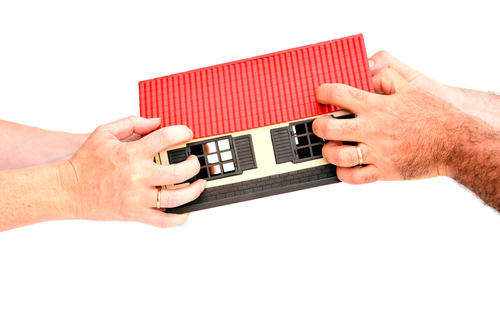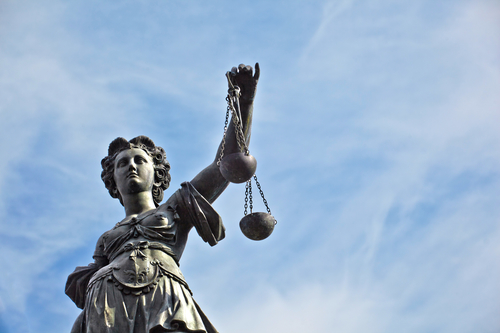 Mediation is particularly helpful in certain contexts when the parties have an established relationship that they want to preserve, such as in family disputes or disputes involving business people. Mediators use conflict resolution skills to help the parties understand the other side better and to communicate in a respectful way with the eventual hope of settling the case. Part of this process involves brainstorming creative solutions that can resolve the dispute. The parties are able to come up with nearly any solution that works for them and are not limited to typical judicial remedies. Some possible solutions include:
Mediation is particularly helpful in certain contexts when the parties have an established relationship that they want to preserve, such as in family disputes or disputes involving business people. Mediators use conflict resolution skills to help the parties understand the other side better and to communicate in a respectful way with the eventual hope of settling the case. Part of this process involves brainstorming creative solutions that can resolve the dispute. The parties are able to come up with nearly any solution that works for them and are not limited to typical judicial remedies. Some possible solutions include:
Revising the Contract
There may be issues that have arisen that were not originally contemplated at the beginning of the contract. The parties may decide to revise the contract to account for these changes. They may decide on a new level of compensation, scope of work or other details involved in the case. A mediator can walk through the issues that have arisen and help the parties consider different options to resolve their dispute so that they both leave with a mutually satisfactory agreement.
Making a Trade
The parties may be able to make an important trade off. Mediators can help uncover the underlying interests of the parties. By exchanging one thing of value for another can often help the parties both walk away satisfied with the result.
Alternative Forms of Compensation
Many business disputes reach a stalemate because neither business person wants to pay more money. However, during a brainstorming session, one possible solution is to provide alternative forms of compensation. This may include offering stock options, profit sharing, a new contract, a recommendation, services in line with the typical offerings of the business or something else that may not be a direct payment of cash from one business to the other.





 When a couple is going through the divorce process, they may not agree about issues related to community property. Mediation and arbitration are two alternatives to litigation that allow the parties to reach a resolution to these issues. While the process for them are different, mediation and arbitration are often much cheaper than trying to sort out the issues through litigation. They are also cheaper than litigating the case. Some issues related to community property may be:
When a couple is going through the divorce process, they may not agree about issues related to community property. Mediation and arbitration are two alternatives to litigation that allow the parties to reach a resolution to these issues. While the process for them are different, mediation and arbitration are often much cheaper than trying to sort out the issues through litigation. They are also cheaper than litigating the case. Some issues related to community property may be: Although mediation has been around for several decades, it continues to expand into new and exciting areas. Commodities matters may involve issues related to futures such as making investments based on ideas related to the future market prices of the investments. Mediation may be used to resolve issues related to future investments, claims against introducing brokers, merchant commission, allegations regarding misrepresentations or omissions of material facts, providing unsuitable investment advice, conflicts of interest and other matters involved with commodities.
Although mediation has been around for several decades, it continues to expand into new and exciting areas. Commodities matters may involve issues related to futures such as making investments based on ideas related to the future market prices of the investments. Mediation may be used to resolve issues related to future investments, claims against introducing brokers, merchant commission, allegations regarding misrepresentations or omissions of material facts, providing unsuitable investment advice, conflicts of interest and other matters involved with commodities. Mediation can be used in a number of cases as an effective and affordable way to resolve conflict. This method can be used in collection cases as a way to help debtors and creditors find middle ground and come up with a solution that benefits both of them. At the end of successful mediation, the parties can have a new agreement in place that is enforceable as a separate contract.
Mediation can be used in a number of cases as an effective and affordable way to resolve conflict. This method can be used in collection cases as a way to help debtors and creditors find middle ground and come up with a solution that benefits both of them. At the end of successful mediation, the parties can have a new agreement in place that is enforceable as a separate contract. With more states legalizing cannabis for medicinal or recreational purposes, there are more cannabis legal issues that are arising. In the marijuana industry, there are a number of new business relationships that have developed in a short period of time, including distribution deals, partnerships and licensing relationships. Like in all other types of business dealings, the potential for disputes to arise between partners, competitors or parties working together is present. Conflict can arise in this context as well as in others, such as issues involving legal cannabis use and employment and housing matters.
With more states legalizing cannabis for medicinal or recreational purposes, there are more cannabis legal issues that are arising. In the marijuana industry, there are a number of new business relationships that have developed in a short period of time, including distribution deals, partnerships and licensing relationships. Like in all other types of business dealings, the potential for disputes to arise between partners, competitors or parties working together is present. Conflict can arise in this context as well as in others, such as issues involving legal cannabis use and employment and housing matters.
